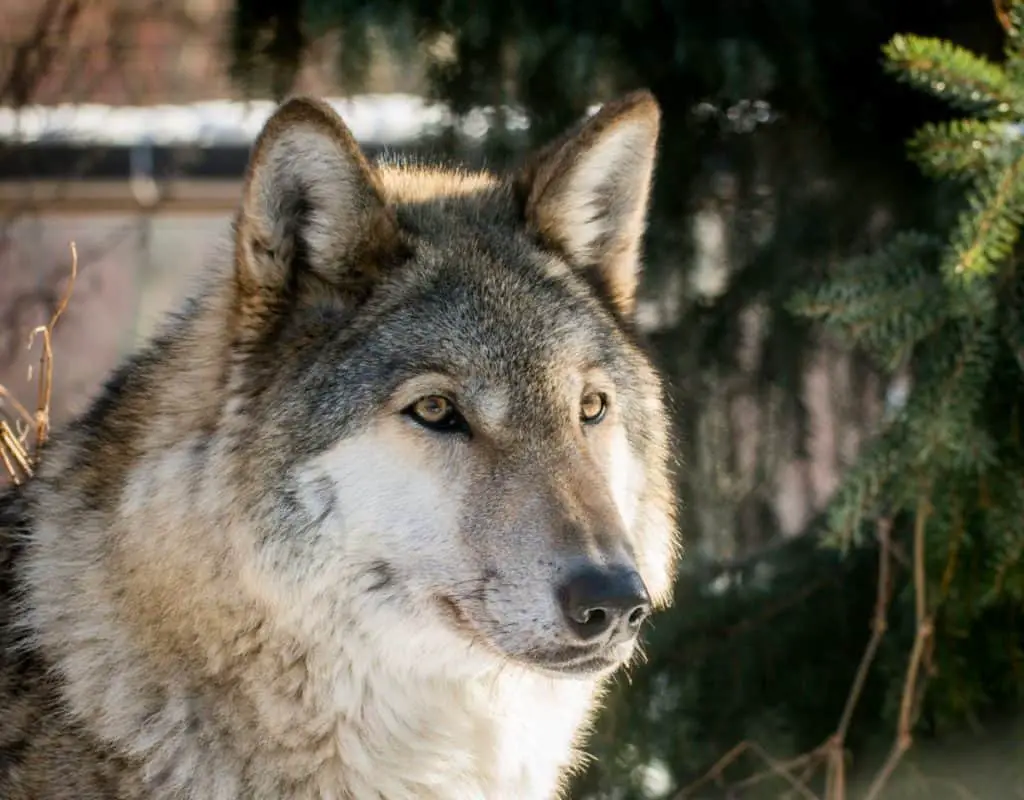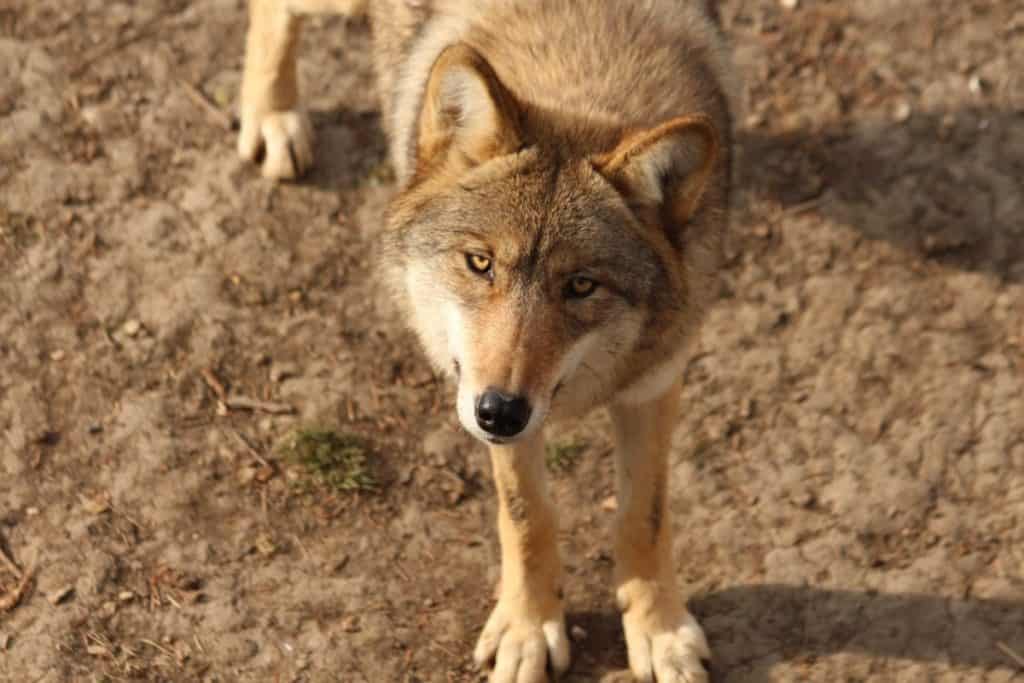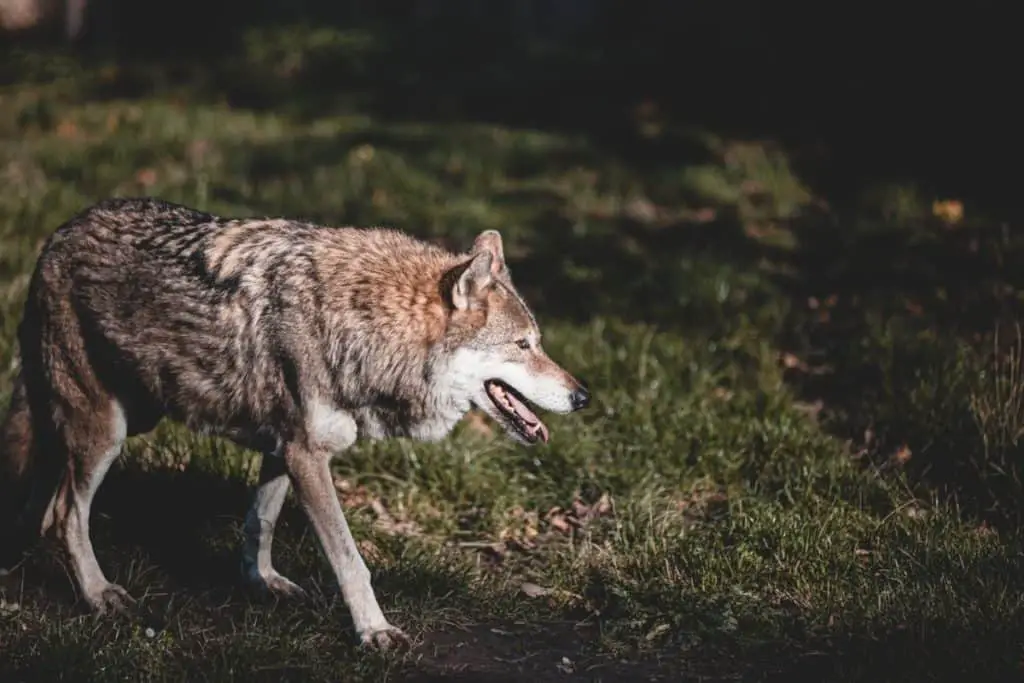
So you are interested in finding out whether wolves are either omnivores, herbivores, or carnivores.
This article will give you the answer to this question and it will also give answers to a few more closely related questions, so make sure you keep on reading this article till the end.
Are wolves omnivores, herbivores, or carnivores? Wolves are categorized as carnivores because every single wolf species will need meat to survive. Wolves aren’t categorized as herbivores because they don’t eat any plant-based foods and therefore they’re also not categorized as omnivores.
Wolves belong to the Canidae family which also consists of many other animals that are carnivores, like, for example, dogs and coyotes.
There is, however, some evidence suggesting that wolves may switch from being carnivores to becoming more omnivorous when meat is hard to find.
Are Maned wolves omnivores, herbivores, or carnivores?
Maned wolves are animals that are categorized as omnivores because they only eat plant-based foods and meat-based foods. They’re not herbivores because they do not only eat plant-based foods, and they’re also not carnivores because they don’t only eat meat.
Even though Maned wolves have the animal name “wolf” in their name, Maned wolves are not classified as wolves. They’re neither a wolf nor a fox but they’re a distinct species.
Maned wolves are omnivores since they feed both on meat and plants. They mainly consume plant matter when available. But if there is no choice between eating meat or vegetables, then they prefer the former.
Are gray wolves omnivores, herbivores, or carnivores?
Gray wolves are seen as carnivores because they can only survive by primarily eating meat. Gray wolves are not seen as omnivores because they do not eat plant-based foods and they’re also not seen as herbivores because they cannot survive on only plant-based foods.
Research has been done on gray wolves which has shown that they have little interest in vegetable matters as well but you can be sure that they will try to eat anything to calm their hunger whenever no meat sources can be found.
Are arctic wolves omnivores, herbivores, or carnivores?
Arctic wolves are not considered to be omnivores because they do not survive on both meat-based foods and plant-based foods. They’re also not herbivores because they can’t survive solely on plant-based foods. They’re, however, carnivores because they solely survive on meat-based foods.
Their diets consist primarily of fish, caribou, birds, and small mammals. Some scientists think that Arctic wolves might also occasionally eat vegetation. But there isn’t enough data supporting this claim yet.
Are red wolves omnivores, herbivores, or carnivores?
Red wolves are not seen as omnivores because they do not eat any plant-based foods. Therefore, they also cannot be seen as herbivores but they can be seen as carnivores because they can survive and thrive on meat-based foods.
Red wolves vary their diet depending on the readily available prey, and sometimes they are forced to go more miles to find food. Most of the time, they hunt small mammals such as rodents, deer, and raccoons.
Are African wolves omnivores, herbivores, or carnivores?
African wolves are not categorized as omnivores because their diet does not consist of any plant-based foods. They are therefore also not categorized as herbivores but they are categorized as carnivores because they can survive and thrive on meat-based foods.
African wolves are known to feed on animal carcasses and various animal species, including rodents, reptiles, and amphibians.
Are dire wolves omnivores, herbivores, or carnivores?
Dire wolves were not categorized as omnivores because their diet did not consist of any plant-based foods. Therefore, dire wolves were not categorized as herbivores either but they were categorized as carnivores because they solely survived and thrived by eating meat-based foods.
Although dire wolves have gone extinct some time ago, you can be sure that they were and are still categorized as carnivores because the characteristics of the found remains of dire wolves tell this story.

Why are wolves considered to be carnivores?
Wolves are considered to be carnivores because they are animals that only eat meat-based foods to survive. Wolves need proteins and fats to sustain themselves throughout their lives and both the proteins and fats they need can be found in the meats that they enjoy the most.
Because meat can sometimes be scarce for wolves, you can be sure that once wolves happen to successfully hunt down prey or to run into some meat that they won’t leave much or even any of the meat behind.
If you can’t get enough of learning about wolves then I encourage you to check out the “Wolves Category Page” which consists of various articles that give answers to wolf-related questions.
Why are wolves not considered to be herbivores?
Wolves are categorized as carnivores because their diet consists solely of meat and therefore they cannot be categorized as herbivores because herbivores can only survive on plant-based foods and not on meat-based foods.
Wolves can be caught eating plant-based foods at times but this does not change them into herbivores.
Are wolves strictly carnivores?
Wolves are animals that are carnivores. Wolves are also strictly carnivores because they can’t thrive on any other type of food than meat. Also, their digestive system isn’t built for eating plant-based foods, so if they eat plant-based foods then digesting these foods can become a problem.
Although digesting plant-based foods can become a problem for wolves, you can be sure that they’ll start munching on plant-based foods whenever there isn’t any meat-based food around.
Can wolves become herbivores?
Wolves are unable to become herbivores because herbivores are animals that solely eat plant-based foods and that have specific digestive systems to properly digest plant-based foods. Wolves have a digestive system that is made for meat-based foods and not for plant-based foods.
Wolves can, however, survive but not thrive on plant-based foods, so in the end, wolves need to find meat sources to correctly silence their hunger.
Are wolves facultative carnivores?
Wolves are known as facultative carnivores. A facultative carnivore does best on a carnivorous diet but can survive, not thrive on a non-carnivorous one, making it an opportunistic hunter and scavenger.
They’ll, however, have a hard time if they are unable to find any meat as plant-based foods won’t be able to sustain them properly.
What do wolves eat?
Wolves will pretty much eat all different kinds of meat where they can set their teeth in but there are certain meats from certain animals that they prefer. They, for example, enjoy the meat of deer, bison, moose, and elks.
So, as you can already tell, wolves love eating the meat of various species of warm-blooded animals, that have fur, and that have four legs.
Check out the video below if you want to see a pack of wolves hunt down a bison.
Are wolves scavengers?
Wolves are primarily carnivores but they’ll become scavengers whenever food is scarce or whenever they’re unable to catch prey for a long time. It’s also possible that you’ll catch a wolf scavenging the dumpsters outside your house as these can be decent food sources for them.
Therefore, you mustn’t leave edible trash around your house as it will attract many other animals that you probably don’t want to have near your house.

Are wolves canines?
Wolves belong to the Canine family because wolves contain characteristics that make them able to be linked to the Canine family. Examples of these characteristics are the animal in question having a bushy tail, erect pointed ears, and them having slender long legs.
Other examples of animals that belong to the Canine family are jackals, foxes, and dogs. There are also dog species out there that have gone extinct some time ago that also belonged to the Canine family.
Conclusion
Now you know that wolves are categorized as carnivores because they can only thrive by eating meat-based foods.
Either a herbivorous diet or an omnivorous diet won’t be able to sustain a full-grown wolf as they can’t digest plant-based foods well like herbivorous or omnivorous animals can.
Wolves can be scavengers too because they’ve been seen feeding off decaying remains of deceased animals.
